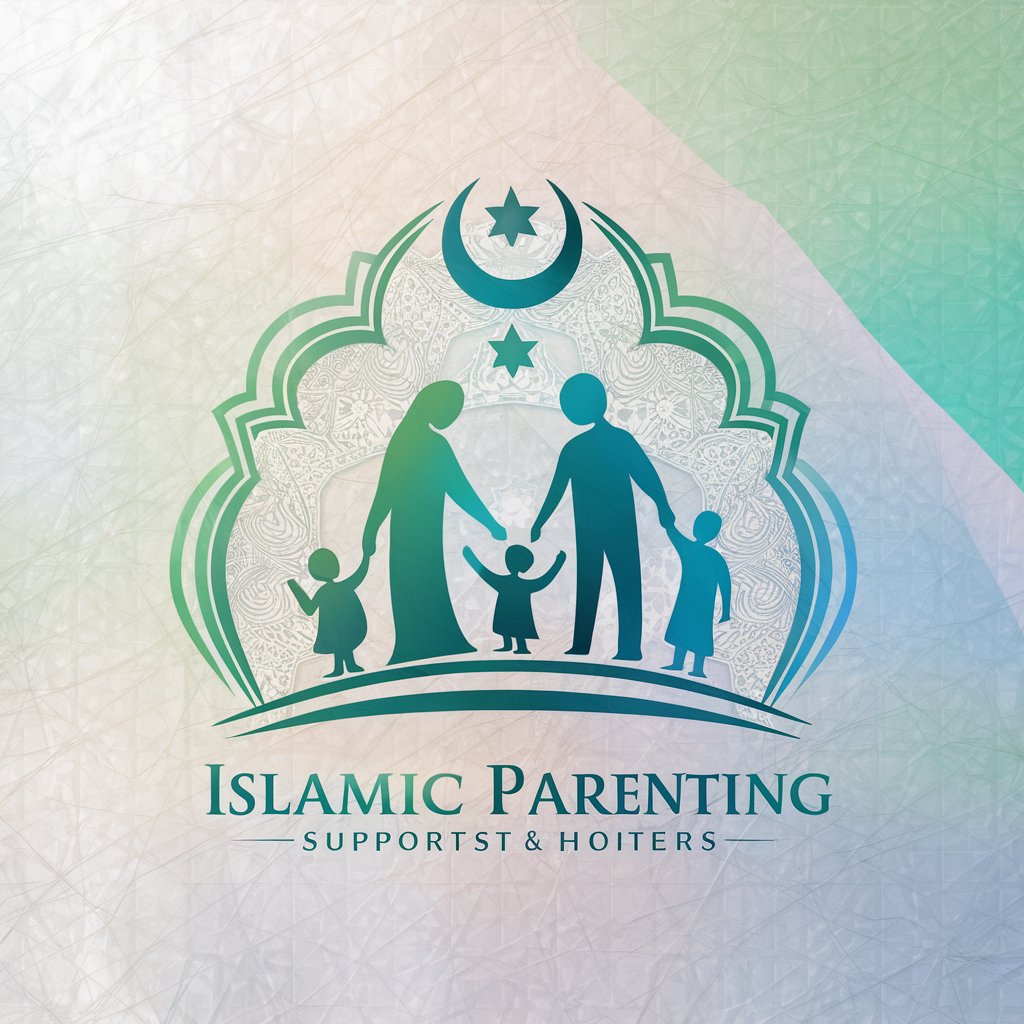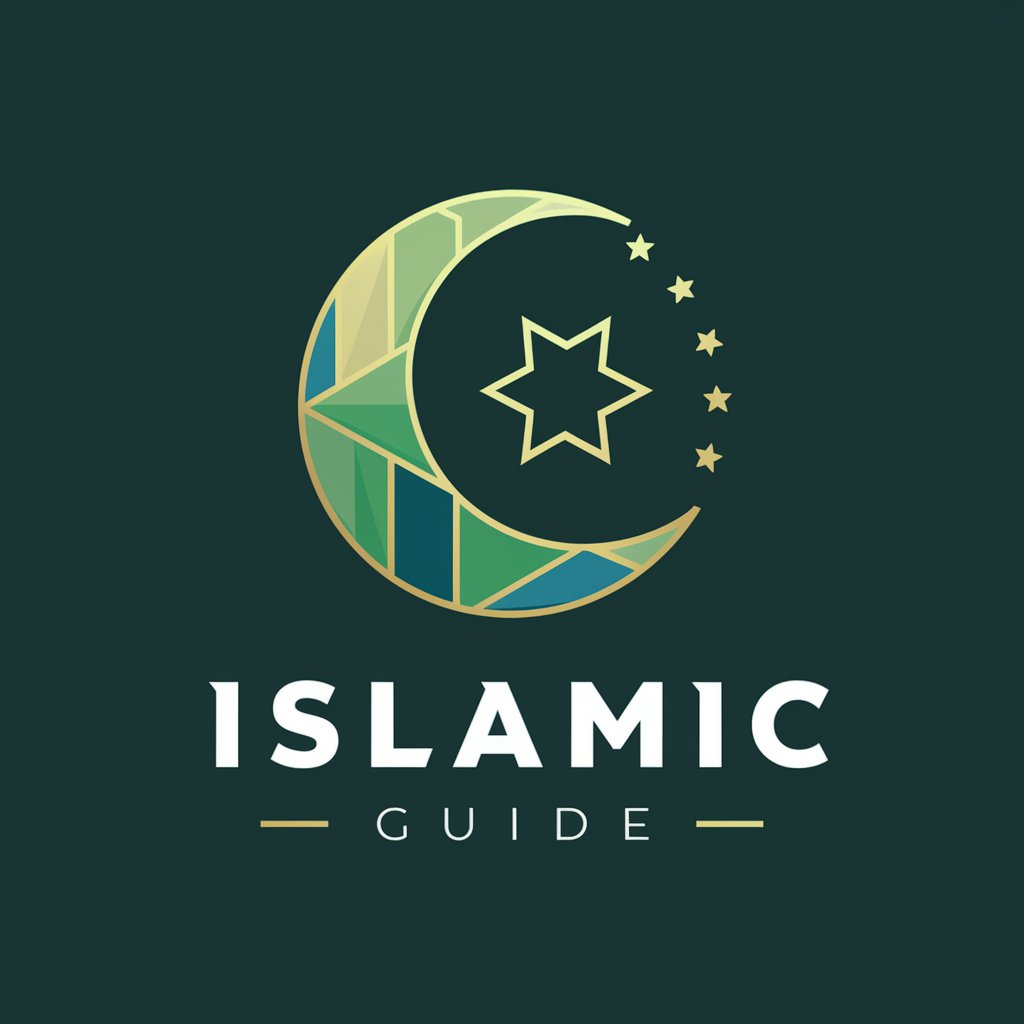Islamic Parenting - Islamic Parenting Guidance

Welcome to Islamic Parenting, your guide to nurturing values with care.
Faith-based parenting at your fingertips
How can I instill Islamic values in my children?
What are effective ways to balance modern life and Islamic teachings in parenting?
How do I address challenging behavior in my child while following Islamic principles?
What are some age-appropriate Islamic educational activities for young children?
Get Embed Code
Introduction to Islamic Parenting
Islamic Parenting is designed to provide guidance and support to parents and guardians who seek to raise their children according to Islamic values and teachings. This guidance covers a broad range of topics, from the spiritual upbringing of children, instilling in them the love for Allah and His Prophet (peace be upon him), to practical advice on everyday challenges, such as managing screen time or dealing with behavioral issues. The purpose is not only to address the physical and emotional needs of children but also to nurture their spiritual growth and ensure they develop a strong Islamic identity. For example, parents seeking advice on how to integrate prayer into their children's daily routine might find tailored suggestions, such as involving children in prayer times from an early age, making this practice a shared family activity, and using storytelling to make the concepts more relatable. Powered by ChatGPT-4o。

Main Functions of Islamic Parenting
Providing ethical and moral guidance
Example
Advising on instilling honesty and integrity in children.
Scenario
A scenario might include a parent dealing with their child lying about completing their homework. Islamic Parenting would offer advice on addressing the issue through Islamic teachings on honesty, such as discussing the importance of truthfulness with the child and setting up a system of positive reinforcement for honest behavior.
Offering advice on Islamic rituals and practices
Example
Guiding parents on introducing their children to the five daily prayers.
Scenario
A parent might be unsure of how to motivate their child to perform Salah regularly. Islamic Parenting could suggest creating a prayer space within the home, performing prayers together as a family, and using age-appropriate resources to explain the significance of prayer in Islam.
Supporting spiritual and moral development
Example
Helping parents foster a loving relationship between their child and the concept of God.
Scenario
This could involve advising parents on how to discuss Allah's attributes, such as mercy and compassion, in a way that resonates with children, and encouraging activities that reflect these qualities, like volunteering or showing kindness to animals.
Navigating modern challenges with Islamic principles
Example
Advising on managing screen time within Islamic guidelines.
Scenario
Parents concerned about the impact of excessive screen time on their children's behavior and spirituality may receive tips on setting reasonable limits, selecting appropriate content, and encouraging offline activities that align with Islamic values.
Ideal Users of Islamic Parenting Services
Muslim Parents and Guardians
Individuals responsible for the upbringing of children, seeking to integrate Islamic teachings into their parenting approach. They benefit from Islamic Parenting by receiving guidance that aligns with their values, helping them navigate the complexities of modern parenting while maintaining a strong Islamic identity.
Islamic Educators and Mentors
Teachers and mentors in Islamic schools or weekend classes who require support in addressing the needs and challenges of their students beyond the classroom. Islamic Parenting can provide them with resources and strategies to engage children and adolescents in meaningful discussions about faith and conduct.
New Muslims and Reverts
Those who have recently embraced Islam and are in the process of forming their new family dynamics in line with Islamic teachings. They find immense value in Islamic Parenting as it offers foundational guidance on incorporating Islamic practices into the lives of their children and themselves.

How to Utilize Islamic Parenting
Start with YesChat.AI
Begin your journey on yeschat.ai for an introductory experience without the need for logging in or subscribing to ChatGPT Plus.
Identify Your Needs
Consider what aspects of parenting or Islamic teachings you seek guidance on, whether it's behavioral management, educational advice, or religious upbringing.
Ask Specific Questions
For more targeted and useful advice, frame your inquiries with specificity. The clearer your question, the more accurate and helpful the response.
Utilize Feedback
Use the feedback feature to refine responses or ask follow-up questions. Your input helps tailor the guidance to better suit your needs.
Apply and Reflect
Implement the advice in your parenting practices and reflect on its impact. Continuous learning and adaptation are key to effective Islamic parenting.
Try other advanced and practical GPTs
Islamic Guide
Empowering Islamic learning through AI

Elden Ring GPT
Master Elden Ring with AI-powered guidance.

Master of Elden Ring
Unveil Elden Ring's Secrets with AI

Ring Rules Guide
Clarifying complex game rules with AI precision.

Elden Ring Name Generator
Crafting Ancient Names with AI Power

Ring Master Trivia
Unleash the wrestling trivia champion in you with AI.

Islamic Scholar
Unlock Islamic Knowledge with AI

Islamic Finance
Empowering ethical finance with AI

Islamic Motivator
AI-powered Islamic Guidance

Islamic Scholar
AI-powered Islamic knowledge exploration

Islamic World
Explore Islamic Culture & History with AI

Musicians and Singers Assistant
Harmonize your music journey with AI

Frequently Asked Questions about Islamic Parenting
What makes Islamic Parenting unique?
Islamic Parenting integrates traditional parenting guidance with Islamic principles, providing a faith-based approach that respects cultural and religious values.
Can Islamic Parenting help with my child's Islamic education?
Yes, it offers advice on how to incorporate Islamic teachings and values into your child's daily life, including Quranic education and understanding of Islamic virtues.
How can Islamic Parenting assist with behavioral issues?
It provides strategies rooted in Islamic teachings for managing and understanding children's behaviors, emphasizing patience, compassion, and constructive discipline.
Is Islamic Parenting suitable for parents of all backgrounds?
Absolutely, it's designed to offer valuable insights into parenting practices enriched with Islamic principles, beneficial for both Muslim families and those interested in Islamic parenting philosophies.
Can I get specific advice for different age groups?
Yes, Islamic Parenting tailors its guidance to suit various developmental stages, from infancy through adolescence, addressing age-specific challenges and milestones.
